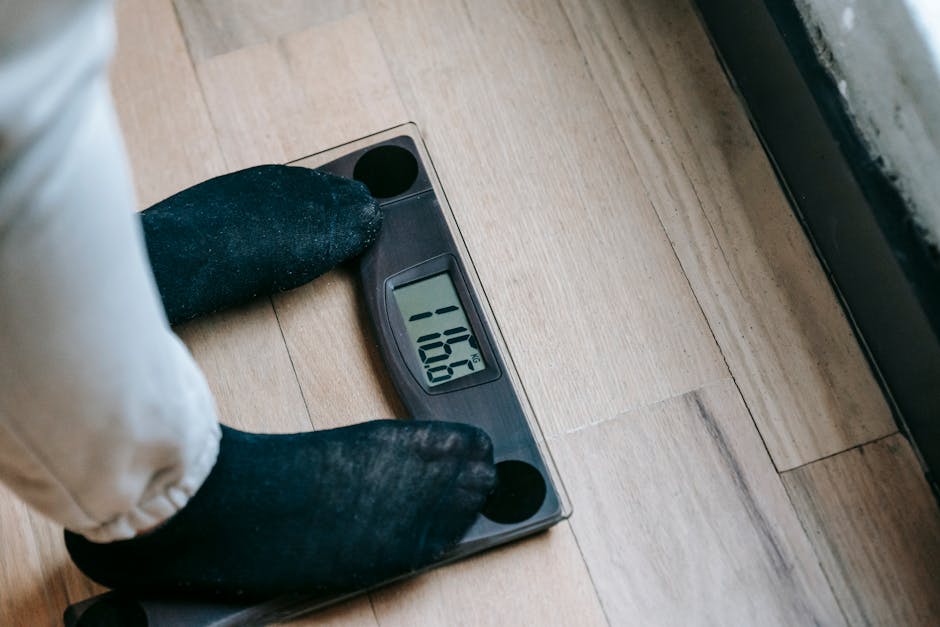Introduction to Personalized Clinical Weight Management
Stepping into the world of weight loss, you'll find a maze of diets, fads, and trends. Yet, what stands out for its effectiveness and sustainability is Personalized Clinical Weight Management. Unlike the one-size-fits-all approach, this method tailors a weight loss plan specifically for your body, lifestyle, and health needs. It begins with understanding you as an individual. Your medical history, genetic predispositions, current health status, and even your daily routines are all considered. The goal? To create a weight management plan that not only sheds pounds but does so in a way that's healthy, manageable, and most importantly, lasting. No more yo-yo dieting or plans that fade with the fleeting enthusiasm of new year resolutions. Here, the focus is on the long haul, adjusting the plan as you progress, ensuring it always fits your evolving lifestyle and health needs. Welcome to the sensible path to weight loss, where it's all about you, tailored specifically for you.

Understanding Your Body: The First Step in Clinical Weight Management
Before diving into any weight management program, you've got to understand your body. It's like knowing the roads before going on a journey. First off, not everyone's body reacts the same way to food or exercise. Some might lose weight faster, while others might find it challenging even to shed a pound. This is because of our unique body types, metabolism speeds, and genetic predispositions.
Think of your body as a car. Some cars are more fuel-efficient, and others require premium fuel to run optimally. Similarly, your body might need a specific type of diet and exercise regimen to hit its stride in weight loss. This is why a one-size-fits-all approach doesn't work in clinical weight management. It's crucial to have a personalized plan that considers your body's needs, preferences, and any underlying health conditions you might have. Recognizing this is your starting line in the journey toward sustainable weight loss.
Setting Realistic Goals for Sustainable Weight Loss
Getting real with weight goals is the cornerstone of shedding pounds for good. Aim too high? You might give up when the scales don't tip as you hoped. Too low? You're selling yourself short. Here's the skinny: sustainable weight loss is about hitting that sweet spot where your goals challenge you without tipping you over the edge. Start with small, achievable targets. Shedding 1 to 2 pounds a week is what experts recommend. Why's that? It's not just about losing the weight; it's about keeping it off. Quick fixes don't stick. Think lifestyle overhaul, not temporary diet. Also, mix it up. Weight loss isn't just about eating less. Consider your meals, sure, but also weave in exercise that you enjoy. Walking, dancing, swimming - it all counts. And hydrate. Sometimes, thirst masquerades as hunger. Drink that water. Keep a progress journal. Noting down your food intake, exercise, and how you're feeling can pinpoint what's working and what's not. Remember, this journey is yours. Personalize it. Your goals. Your pace. And celebrate those milestones, no matter how small. Every pound lost is a victory in the march towards sustainable health.
The Role of Medical Professionals in Your Weight Loss Journey
Doctors and dietitians are key players in your quest for weight loss. They create plans that stick to your body's needs. Here's why they're essential. Doctors check your health to ensure weight loss is safe for you. They look at your history and current health to spot any risks. This means they can suggest a weight loss plan that won't harm you. Dietitians then step in to tailor a diet plan. Everyone's body reacts differently to food. What works for one person might not work for another. Dietitians understand this. They craft eating plans that match your health needs and taste buds. So, medical professionals not only guide you safely through weight loss but also make sure the plan fits just right for you.
Nutrition Counseling: Tailoring Your Diet for Optimal Results
Every body is unique, which means a universal diet plan doesn't work the same for everyone. That's where nutrition counseling comes in, a key element in personalized clinical weight management. It's not just about losing weight; it's about finding what works for your body and lifestyle. A nutrition counselor takes a close look at your eating habits, lifestyle, and even your genetic makeup to craft a diet plan that's just for you. This tailored approach can help pinpoint the types of food that fuel your body best, and which ones to avoid. Maybe you thrive on a high-protein diet, or perhaps your body responds better to plant-based foods. By working with a counselor, you'll discover the right balance, ensuring you get optimal results. This isn't a one-size-fits-all diet, it's a journey to understanding your body better and making food choices that support your weight loss goals in a sustainable way. Remember, the goal here isn't just to drop pounds; it's to find a way of eating that you can maintain for life.
Exercise Plans: Customizing Your Physical Activity
When we talk about shedding pounds and keeping them off, a one-size-fits-all exercise plan just doesn’t cut it. You’re unique, and so is your body’s reaction to different physical activities. Crafting a custom exercise plan is your ticket to sustainable weight loss. Start by considering what movements you actually enjoy - be it walking, swimming, cycling, or lifting weights. Joy is the secret sauce to consistency. Then, mix it up. Variety not only combats boredom but also challenges different muscles and improves your overall fitness. Don’t just stick to cardio; strength training is your ally in building muscle that burns more calories, even at rest. Remember, more muscle equals a higher metabolic rate. Pace yourself. Begin with manageable sessions and gradually increase the intensity and duration. This way, you avoid burnout and injury. Listen to your body. Rest is as crucial as activity. Ignoring pain or exhaustion can send you spiraling into setbacks. Finally, reevaluate regularly. Your body changes, and so should your exercise plan. This dynamic approach keeps you moving forward towards your weight loss goals without hitting a dreaded plateau.
Behavioral Therapy: Changing Your Relationship with Food
Behavioral therapy is a game changer when it comes to losing weight. It's not just about what you eat, but how and why you eat. This method digs deep, changing the way you think about food. You'll learn to spot and kick the habits that make you reach for snacks. Think eating out of boredom or stress? That's what we're tackling.
First steps include tracking what you eat and when, which shines a light on those sneaky habits. Next, you'll set realistic goals. No dreaming too big too soon. It's about small, doable changes. Swap soda for water. Choose a walk over a snack run.
Also, you'll learn to handle setbacks like a pro, not letting one slip-up throw you off. It's about progress, not perfection. Behavioral therapy turns the table, making you the boss of your food choices, not the other way around. This is how you change your relationship with food, for good.
Regular Monitoring and Adjustments: Key to Lasting Success
In the journey to shed those extra pounds and keep them off, regular check-ins and tweaks in your plan play a crucial role. Think of your weight loss journey as driving a car on a long road trip. You need to keep an eye on the fuel, make sure the tires are in good shape, and occasionally adjust your route based on road conditions. In weight management, the "fuel" is your nutrition, "tires" are your physical activities, and the "road conditions" are your body's response to the diet and exercise plan.
Having a professional track your progress helps catch anything that might be making your journey slower or tougher. This could mean adjusting your diet if you're not getting the nutrients you need, or changing up your exercise routine to challenge your body in new ways. It's not just about doing more; it's about doing what's right for your body at the right time.
Why is this important? Simple. Bodies are complicated. They adapt, resist, and respond differently as time goes on. What worked like a charm one month might not work the next. That's why regularly checking in on your progress and making necessary adjustments ensures you're always moving efficiently towards your goal. It's not a one-size-fits-all deal, and it’s not set in stone. It's a dynamic, responsive process that respects your body's unique characteristics and needs.
So, keep your eyes on the road, hands on the wheel, and be ready to make those adjustments. It's the key to reaching your destination of sustainable weight loss and maintaining it in the long run.
Success Stories: Real-Life Examples of Effective Clinical Weight Management
People like Jane, who lost 50 lbs in a year, and Mike, who dropped 30 lbs in just 6 months, prove that clinical weight management can work wonders. Here's how they and others succeeded: they followed personalized plans from health professionals, stuck to recommended exercise routines, and made significant lifestyle changes. Jane, for instance, worked closely with a dietitian to overhaul her diet, focusing on nutrient-rich foods. Mike teamed up with a fitness coach, who tailored a workout plan just for him. They didn't just shed pounds; they gained energy, improved their health, and most importantly, kept the weight off. Their journeys highlight a crucial point: real success comes from personalized, science-backed approaches, not fads or quick fixes.
Conclusion: Embracing a Healthier Lifestyle for the Long Term
Embracing a healthier lifestyle for the long term isn't just about losing weight. It's about making lasting changes that stick. Personalized clinical weight management programs get this. They're not about quick fixes but finding what works for you. This means eating better, moving more, and tweaking your habits to align with a healthier you. The goal? Not just shedding pounds but keeping them off. Real change comes from habits that last. So, as you wrap up your journey into weight management, remember it's about more than numbers on a scale. It's about feeling good, inside and out, and making choices that support this new version of yourself every day. It's a marathon, not a sprint. Commit to yourself, and the results will follow.

